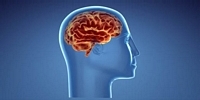Evidence shows regular physical exercise can prevent or reverse many life-threatening illnesses such as heart disease, diabetes and cancer. An active lifestyle is a source of many health benefits for all people, whatever their age or ability.
For children and youth
Physical activity is essential to growth and development of children and youth. Practiced regularly from childhood, physical exercise improves cardiovascular capacity, the strength, flexibility and density of bone. It also prevents obesity.
In addition to helping maintain a healthy weight, physical activity improves self-esteem, personal effectiveness, school performance and cognitive and sense of well-being. It also helps to reduce several risk factors for diseases such as coronary heart disease by creating good habits from childhood and adolescence. According to many researchers, young adults who are physically active are less likely to smoke or consume alcohol or other drogues.
For adults
Those who engage in regular physical activity and are in good physical condition perform their daily tasks more easily, feeling better and feel less tired. Their immune system is most likely to be high. Many researchers confirm that regular physical exercise helps to promote healthy blood sugar levels; reduce the risk of all types of cancer; help maintain a normal blood pressure level; protect against osteoporosis; and help prevent depression and stress. Half of people between 30 and 70 years affected by these medical conditions are attributable to a physical inactivity lifestyle, not aging or genetic.
Activities consisting in lifting a weight reduce the rate of bone loss associated with osteoporosis. Regular physical activity helps maintain strength, flexibility, balance and coordination, and reduces the risk of falls - a major concern for old people.
Aging is accompanied by an increased limitation on the ability to perform basic daily activities. However, a significant portion of the loss of independence associated with aging is due to physical inactivity. If you want know a healthy aging, you should exercise regularly.
For people with disabilities
Having a physical disability does not mean you should not exercise. According to the concept of active lifestyle, it is not accurate to compare one person with another. Each person sets their own standards and gets their own benefits socially, emotionally, spiritually and physically. Exercises required a 21-year-old athlete may not suitable for a 67-year disabled man, but they all need to exercise regularly, as long as it is possible.
An active lifestyle helps to cope more easily with the challenges of everyday life and may even prevent the recurrence of certain disabilities. In addition, it gives a renewed energy to cope with the physical and mental stress associated with a disability.
From the standpoint of health, an active life improves mobility and posture and reduces the pain that can lead to prolonged sitting. Physical exercise Improves circulation; circulation reduces the risk of blood clotting and swelling in the legs. In addition, people who use a mobility aid can move more easily if they maintain a healthy weight.
What supplements should you take during exercise?
Creatine – is a nitrogenous organic acid that helps to supply energy to muscle and nerve cells.
Glutamine – is the most abundant Amino Acid in skeletal muscle tissues, comprising more than 60% of the free amino acid pool in skeletal muscle and more than 20% of total circulating amino acids. This conditionally essential amino acid is extremely important in overall health, athletics and in building and maintaining muscle.
Antioxidants - are molecules that slow or prevent the oxidation of other chemicals. Oxidation reactions can involve the production of free radicals, which can form dangerous chain reactions. Without antioxidants, your cells cannot contend with free radicals. Antioxidants help defend your body against free radical attack and many diseases.
Essential Fatty Acids - cannot be synthesized by our organism. They must be provided daily by food we eat. Failure to obtain even 1 of these essential amino acids could prevent the organism to use other elements protein that would have had to be involved, resulting in the degradation of the body's proteins and muscle functioning.
Protein Supplements - Every cell in the human body contains protein. It is a major part of the skin, muscles, organs, and glands. Protein is also found in all body fluids, except bile and urine. You need protein in your diet to help your body repair cells and make new ones. Protein is also important for growth and development during childhood, adolescence, and pregnancy.
Multi-vitamin and Mineral Formula - are absolutely necessary to our body even in small quantities. Besides, with the exception of vitamin D, vitamins can not be synthesized by the body and must be present in our daily food or taking in supplements! We mainly use the range of B vitamins (B1, B2, B3, B5, B6, B9 and B12), vitamin C and vitamin E, without forgetting the vitamin A and vitamin D. In short, when it comes to vitamins, all are useful and indispensable to good functioning of our organism
We offer a variety of natural supplements that your body needs to stay strong and healthy. Visit our ”> sports nutrition supplements website today and save 5%.



